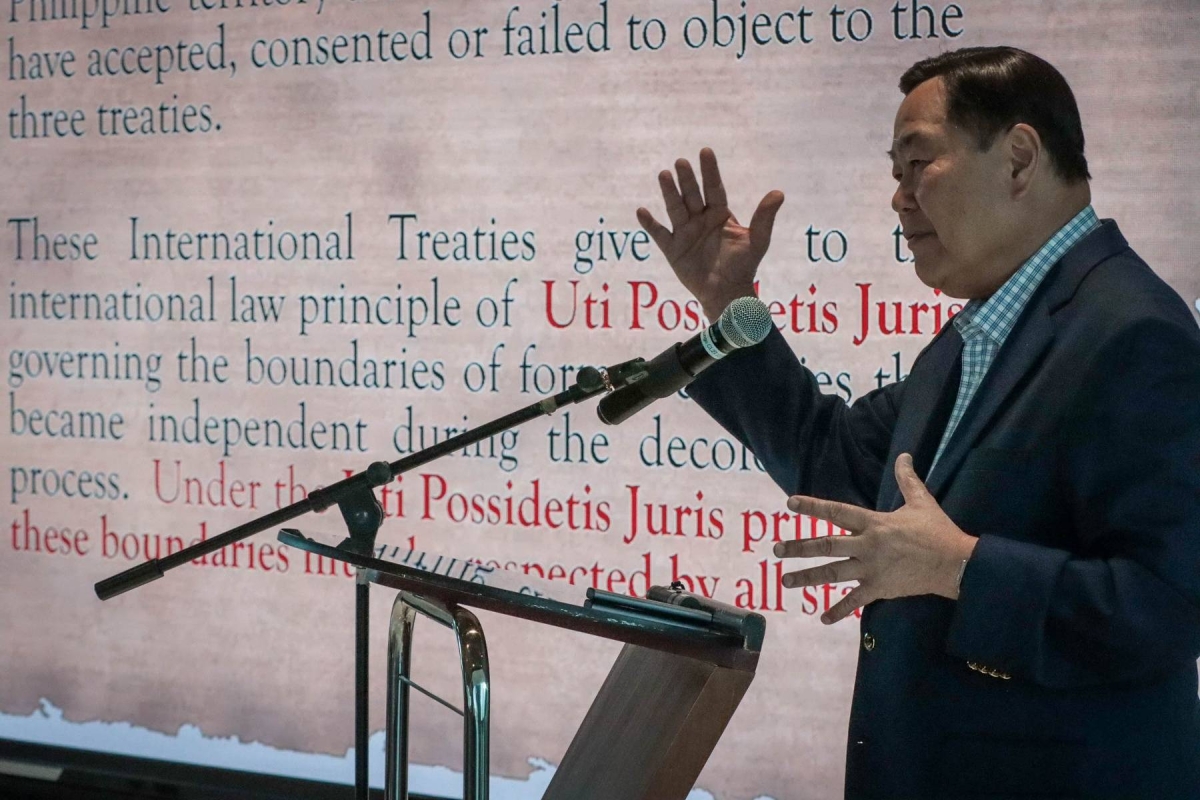In a recent event organized by the NextGen Organization of Women Corporate Directors Philippines Inc., Retired Supreme Court Senior Associate Justice Antonio Carpio expressed his satisfaction with the current administration’s efforts in asserting Philippine sovereignty in the West Philippine Sea (WPS). Carpio commended President Ferdinand Marcos Jr.’s initiatives to renew ties with the United States and engage with other countries for joint patrols in the WPS, highlighting a significant shift from the previous administration’s lack of political will.
However, Carpio also emphasized the need for a “systematic” approach in combating the massive disinformation campaign by China. He urged the government to continue relying on international law, as the Philippines lacks a credible self-defense force. Carpio’s insights shed light on the complexities surrounding the WPS issue and the importance of strategic tactics in safeguarding national interests.
One of the key points Carpio raised was the necessity for a systematic approach in countering China’s disinformation campaign. He noted that individual efforts are insufficient and proposed that the Department of Education (DepEd) play a crucial role in this endeavor. Carpio expressed disappointment that the DepEd, currently headed by the daughter of former President Duterte, has not taken a firm stance on the WPS dispute. By involving the DepEd, Carpio suggests that the government can educate the younger generation about the historical and legal aspects of the WPS issue, creating a more informed and united front against disinformation.
Despite the victory of the Philippines over China’s claims in the WPS by The Hague Tribunal in 2016, Carpio acknowledged that the country still faces challenges in asserting its sovereignty. He stressed the importance of continuing to rely on international law as a means of peaceful resolution, given the Philippines’ lack of a credible self-defense force. Carpio proposed inviting China, Vietnam, and Malaysia to submit the territorial dispute in the Spratlys to voluntary arbitration by the International Court of Justice. Additionally, he suggested inviting China to submit the territorial dispute over the Scarborough Shoal separately. By pursuing peaceful means mandated by the UN Charter, Carpio believes that the Philippines can finally settle the territorial disputes in the Spratlys and Scarborough Shoal.
In the event that these countries fail to comply with the arbitration, Carpio highlighted that it would provide an opportunity for the Philippines to present its “iron-clad evidence” of sovereignty over the contested waters. This move would not only strengthen the Philippines’ position but also raise global awareness about the legitimacy of its claims in the WPS. Carpio’s insights underscore the significance of international law in resolving territorial disputes and the potential impact of pursuing peaceful means.
Retired Justice Carpio’s commentary serves as a valuable contribution to the ongoing discourse surrounding the West Philippine Sea. His call for a systematic approach in countering disinformation and reliance on international law resonates with the need for a strategic and principled response to safeguard Philippine sovereignty. As the country continues to navigate the complexities of the WPS issue, Carpio’s insights provide a roadmap for future actions that prioritize the nation’s interests and uphold the rule of law.







